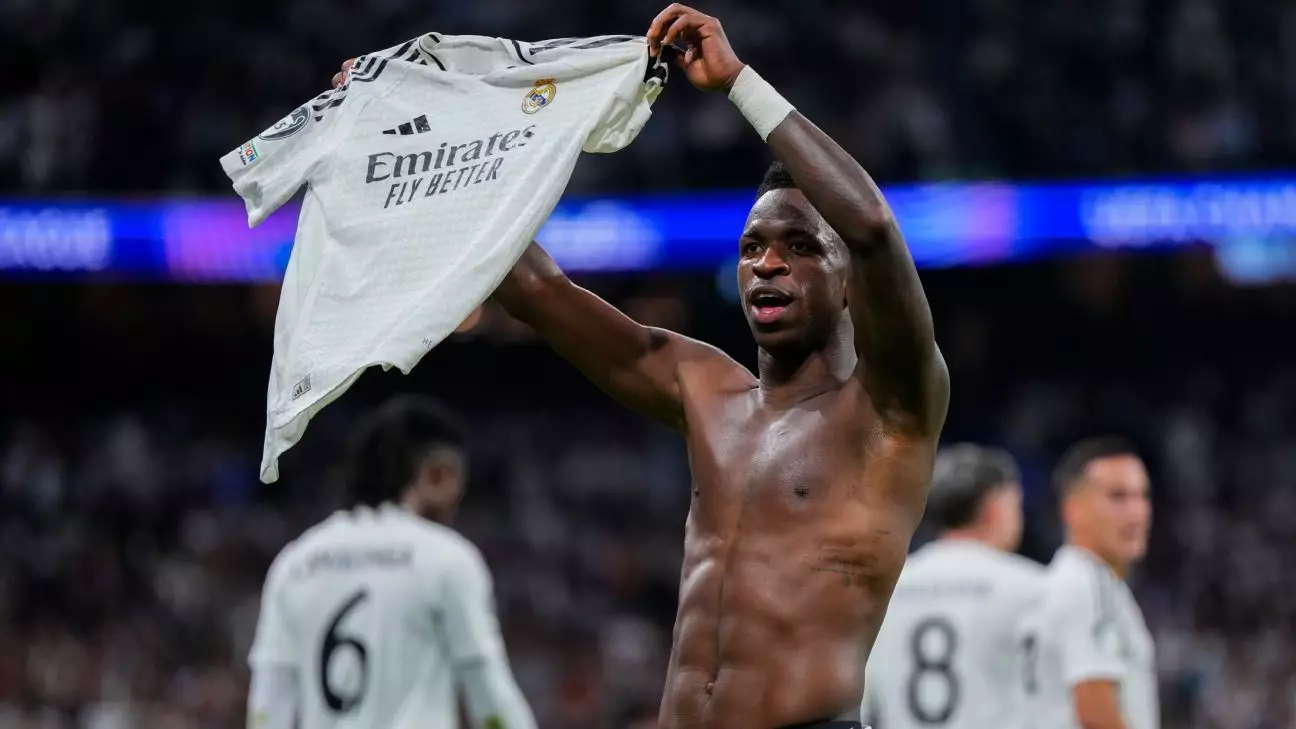In a stunning display of resilience, Real Madrid turned around a dire situation during their Champions League clash against Borussia Dortmund, emerging victorious with a scoreline of 5-2. Trailing 0-2 at halftime, the team showcased an exceptional second-half performance led by Vinícius Júnior, whose remarkable hat trick not only tipped the scales in favor of Madrid but also reaffirmed his status as a top contender for the prestigious Ballon d’Or. Madrid’s comeback was a testament to the adage that football is played over two halves; while the first half saw the players lack intensity and cohesion, the second half illuminated their potential, highlighting the importance of mental fortitude in sports.
Carlo Ancelotti’s post-match remarks spotlighted Vinícius’ immense character and contagious energy that galvanized the squad when it mattered most. Ancelotti observed, “It’s unusual for a player to have a second half like he did.” His analysis pointed to not just Vinícius’ skills on the pitch, but also his ability to inspire his teammates through sheer determination. This observation—is particularly resonant when considering that successful teams often rise from the ashes of adversity through shared resolve, which was embodied by Vinícius during this pivotal match.
The timing of Vinícius’ hat trick couldn’t be more significant, as it came just days ahead of the announcement for the 2024 Ballon d’Or winner. While Ancelotti acknowledged that the hat trick would undoubtedly bolster Vinícius’ candidacy, he emphasized that the foundation for such recognition was laid during the previous season. This statement reflects the ongoing conversation around consistent performance versus isolated moments of brilliance in the pursuit of individual awards. Vinícius is not merely a flash in the pan but has demonstrated sustained excellence, which is critical in the eyes of voters determining the next Ballon d’Or champion.
Reflecting on the match’s turning point, goalkeeper Thibaut Courtois spoke about the pivotal psychological shift following the first goal for Madrid. The phrase, “you feel the opponent’s fear,” encapsulates a profound truth in competitive sports: momentum can shift dramatically based on a single event. This psychological component is often underestimated but becomes vital in situations like this, where crowd support amplifies players’ performance. As the Santiago Bernabéu vibrated with excitement post-goal, Real Madrid harnessed that energy to score additional goals, culminating in a triumphant comeback.
Despite the uplifting victory, the match did bring a hint of concern for Madrid as forward Rodrygo exited the game with a muscle injury. His potential absence for the impending Clásico against Barcelona introduces a layer of uncertainty for Ancelotti’s tactical plans. Every player’s contribution is integral in high-stakes fixtures—a reality Madrid must navigate carefully as they prepare for one of football’s biggest rivalries.
This encounter encapsulates the very essence of football—a blend of skill, courage, and strategic acumen, underscored by the relentless pursuit of glory. Madrid’s ability to adapt and overcome should serve as a potent reminder of what teamwork and resolve can achieve, as they set their sights on future challenges with renewed confidence.

